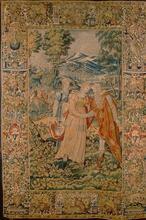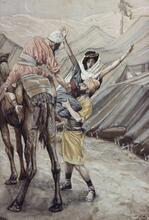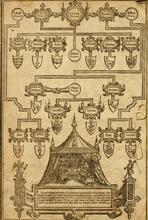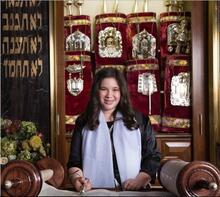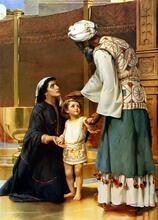Zilpah: Bible
Zilpah was given as a wedding gift to Leah by her father Laban on the occasion of Leah’s marriage to Jacob. Through the initiative of Leah, Zilpah became a secondary wife to Jacob and bore him two sons, Gad and Asher. Zilpah’s role would be comparable to what contemporary society refers to as surrogate motherhood. Though Zilpah was a secondary wife to Jacob, her status did not affect her sons within the lineage of Jacob.
Marriage Customs in the Bible
Marriage customs in the Hebrew Bible are depicted from the male point of view and allow for a man to have more than one wife, though a woman could not have more than one husband. Social scientists categorize a marriage between one man and two or more women of equal social status as polygyny, whereas the term polycoity refers to a marriage pattern in which a man takes an additional wife, beyond his primary wife, who is of lower social status than the primary wife. In the latter case, this secondary wife is usually a concubine or a handmaid, whose role within the family unit is either to bear children in order to build up the husband’s lineage or to provide sexual enjoyment for the husband. The distinction between a primary and a secondary wife is based on economic considerations: marriage to a primary wife is established on the basis of a conjugal fund property to which both spouses contribute and which becomes the foundation of the economic and legal rights of the primary wife. A secondary wife is a woman without economic standing in her husband’s household.
Zilpah was given as a wedding gift to Leah by her father Laban on the occasion of Leah’s marriage to Jacob. The economic basis of the marriage between Leah and Jacob meant that Leah was Jacob’s primary wife. However, after Leah’s marriage to Jacob, Leah’s sister Rachel also became a primary wife to Jacob—a marriage arrangement known as sororal polygyny. Despite the equal socioeconomic status of Leah and Rachel as primary co-wives of Jacob, the two sisters competed against each other for a place of honor within their husband’s family through their ability to bear children. Their competition went so far as to have Jacob father children through their handmaids (Rachel’s handmaid was Bilhah) in each woman’s attempt to establish herself as the victor in a competition of baby-making. Perhaps the competition between sisters who are wives is related to the Levitical stipulation prohibiting a man from marrying his sister-in-law (Lev 18:18).
Zilpah’s Role and Status
Through the initiative of Leah, Zilpah became a secondary wife to Jacob and bore him two sons, Gad and Asher. Though Gad (“fortune”) and Asher (“happy”) were borne to Jacob by Zilpah, they were considered to be children of Leah, who gave them names symbolic of her perspective on their births and their ability to gain favor for her with Jacob. Thus, Zilpah’s role would be comparable to what contemporary society refers to as surrogate motherhood. In this family system, a woman’s biology is part of her destiny, or even tragedy, in the case of a barren woman. A woman establishes her worth as a wife through her ability to increase her husband’s lineage; her prestige is determined by her reproductive capabilities. Additional progeny also augment the family workforce and thus its economic potential. The equal status of Rachel and Leah as primary wives of Jacob resulted in a shift in the generation of Jacob’s offspring from a vertical genealogy to a horizontal one; instead of choosing only one primary heir in the descending generation, multiple heirship occurred as all the offspring of Jacob, presented as ancestors of the twelve tribes of Israel, were reckoned as his heirs. The secondary status of Zilpah as a wife to Jacob did not result in secondary status for her sons within the patrilineage of Jacob. The status of the mother in this case was separate from the status of her children. Asher and Gad were considered direct heirs to the patrilineage of Terah, their great-great-grandfather, and are listed among the twelve sons/tribes of Jacob/Israel. However, Asher and Gad represent the most peripheral of the tribal territories, probably the first two to cease to be included in the nation of Israel. Their marginal status may be foreshadowed by their having been the children of the secondary wife associated with the unpreferred primary wife, Leah.
Meyers, Carol, General Editor. Women in Scripture. New York: 2000.
Steinberg, Naomi. Kinship and Marriage in Genesis: A Household Economics Perspective. Minneapolis: 1993.

